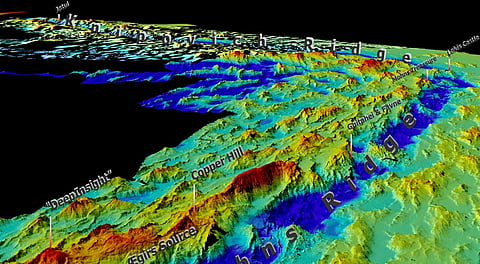

Shares in Norwegian seabed mining start-up Green Minerals fell by 36 per cent on Monday after the government scrapped a first licensing round for deep-sea mining in return for support for its annual budget.
A small far-left environmentalist political party in Norway succeeded on Sunday in blocking plans to mine the seabed at the bottom of the Arctic, by demanding the government scrap its first licensing round in return for support for the budget.
The government, which had planned to offer its first deep-sea mining exploration permits in the first half of 2025, said that although the plan was suspended, preparatory work would continue, including creating regulations and mapping the environmental impact.
Green Minerals said earlier on Monday that it expected a delay of up to 12 months for the licensing round. Green Minerals's shares closed at 4.17 Norwegian crowns on Monday, despite the company saying it expected the halt to be temporary.
"The company does not change its estimated timeline for first ore, still expected to take place in the very end of the 2020's," Green Minerals said in a statement.
At least three Norwegian seabed mineral start-ups - Loke, Green Minerals and Adepth, have previously said they planned to bid in the first licensing round.
Bergen-based Adepth said it also expected the delay to be temporary, with the first licenses to be issued nine to 12 months later than previously anticipated.
"The delay contradicts a very clear mandate from a broad majority in the Norwegian Parliament as recently as January 2024, exposing the current government's lack of decisiveness," the company's CEO Anette Broch M. Tvedt added in a message to Reuters.
Norwegians also head to the polls in September and two opposition parties leading in opinion surveys, the Conservatives and the Progress Party, are in favour of deep-sea mining.
Norway, where vast hydrocarbon reserves have made it one of the world's wealthiest countries, has been a leader in the global race to mine the ocean floor for metals that are in high demand as nations transition away from fossil fuels.
Oslo planned to open large areas of its Arctic region for its inaugural seabed licensing round, despite opposition from green campaigners and a coalition of 32 countries, including Germany, France, Canada and Brazil.
Preliminary official resource estimates showed "substantial" accumulations of metals and minerals, ranging from copper to rare earth elements, the government said in 2023.
(Reporting by Stine Jacobsen, editing by Anna Ringstrom and Terje Solsvik)
